Here are some of the books I read and loved in 2014. In no particular order...
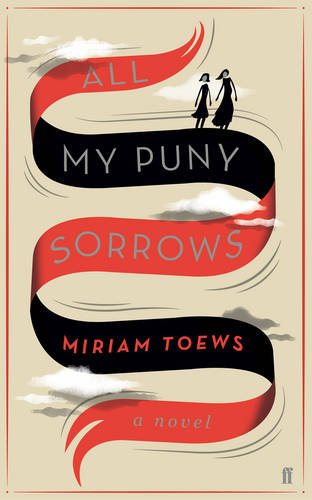 I loved this book.
I loved this book.
Perhaps I loved it because I have driven through the night to be at my brother's bedside. Maybe I loved it because I have listened, with clenched fists, to the news that he has, once again, been discharged from hospital, despite not being mentally well enough to remember to eat or change his clothes. I may have loved this book because I've regularly felt infuriated and hurt by my brother's refusal to make even the smallest attempt to accept treatment. It could be that I loved this book because as I read it I felt the horror of someone else's helplessness and realised that it was similar to my own. This novel made me cry and it made me laugh; it reminded me that humour that can be found in the darkest of places.

In July 2012 Thomas Harding's fourteen-year-old son Kadian was killed in a bicycle accident. Shortly afterwards Thomas began to write. This book is the result. Part tribute, part lament, Kadian Journal is a precise and heart-breaking account of bereavement. It's a raw, uncompromising and, at times, uncomfortable book. Harding details a loss that is both unimaginable and unbearable - Kadian Journal made me hug my children a little harder, and it made me want to hug Harding and his family, too.
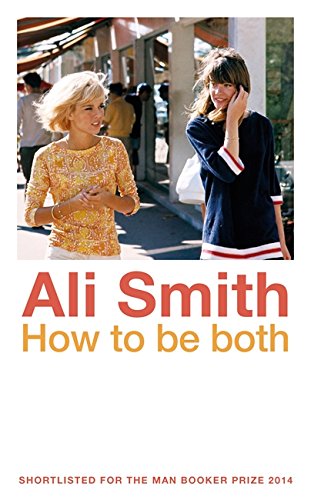
This is everything you'd expect from Smith: deft, clever and elegant. How to be Both is divided into 2 sections. Some editions begin with one section and some begin with the other. My edition began with Francesco and concluded with George. I'm glad it did. I *think* it's the way I would have preferred it to be. But I'm not 100% certain - how could I be certain, having read Francesco and George's musings about the different ways of seeing and looking, and whether the first thing we see can really be described as 'first'? - I'll never really know for sure. And I like that.
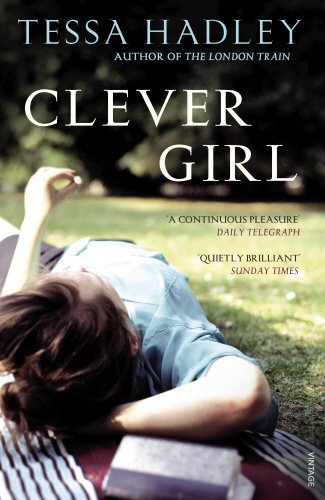 Clever Girl is a fragmentary novel that follows the trajectory of Stella's life. Written in beautiful, clear prose, and rich with carefully observed detail, it's exactly what you'd expect from Hadley.
Clever Girl is a fragmentary novel that follows the trajectory of Stella's life. Written in beautiful, clear prose, and rich with carefully observed detail, it's exactly what you'd expect from Hadley.
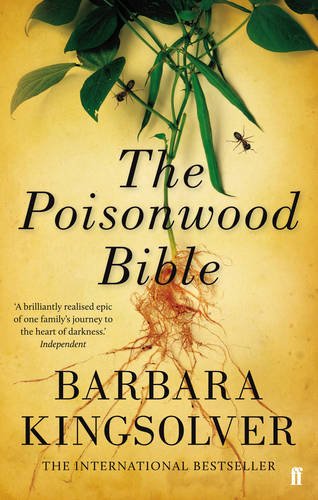 I know, I know - I can't believe it took me so long to read this, either. What an incredible novel. I've rarely felt so enraged while reading. I could have cheerfully murdered Nathan Price - I didn't care about his demons or his traumatic past, I just wanted to thump him. This novel is told by the long-suffering women in Nathan Price's life. It's a gorgeous exploration of the toxicity of patriarchy, the dangers of fundamentalism and the abuses of colonialism.
I know, I know - I can't believe it took me so long to read this, either. What an incredible novel. I've rarely felt so enraged while reading. I could have cheerfully murdered Nathan Price - I didn't care about his demons or his traumatic past, I just wanted to thump him. This novel is told by the long-suffering women in Nathan Price's life. It's a gorgeous exploration of the toxicity of patriarchy, the dangers of fundamentalism and the abuses of colonialism.

'WHAT A WONDERFUL BOOK' (see what I did there?). Irving explores doubt and faith in this darkly comic novel. When Owen Meany kills his best friend's mother in a baseball game, he convinces himself that he is an instrument of God. This is a long novel - at times I had no idea where it was going, but I didn't really care because Owen Meany was so interesting and strange, and I *really* wanted to know what happened to him. I found the ending incredibly moving (if a little too neat) as several things suddenly made sense.
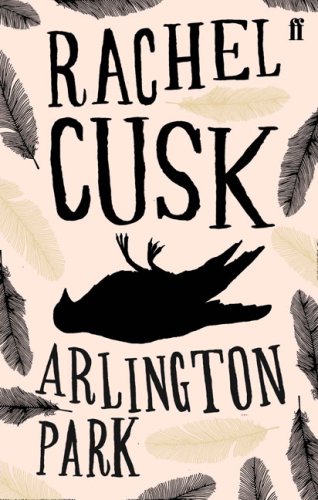 Cusk expertly conveys the unsaid and the unsayable in these linked stories. I love her observations regarding the ways in which woman are changed (and, in some cases, ravaged) by motherhood. Take this passage, for example: 'For Martin, her body was like a village that over time had sprawled and grown until it became a bustling centre, cut through with new roads and modern developments, some of them unsightly. It had changed, but it was where he lived.' Arlington Park reminded me of Helen Simpson's delicious prose. I read it while son 2 was in hospital in early November and I found myself playing the 'just one more page' game at night, even though I really needed to get to sleep.
Cusk expertly conveys the unsaid and the unsayable in these linked stories. I love her observations regarding the ways in which woman are changed (and, in some cases, ravaged) by motherhood. Take this passage, for example: 'For Martin, her body was like a village that over time had sprawled and grown until it became a bustling centre, cut through with new roads and modern developments, some of them unsightly. It had changed, but it was where he lived.' Arlington Park reminded me of Helen Simpson's delicious prose. I read it while son 2 was in hospital in early November and I found myself playing the 'just one more page' game at night, even though I really needed to get to sleep.
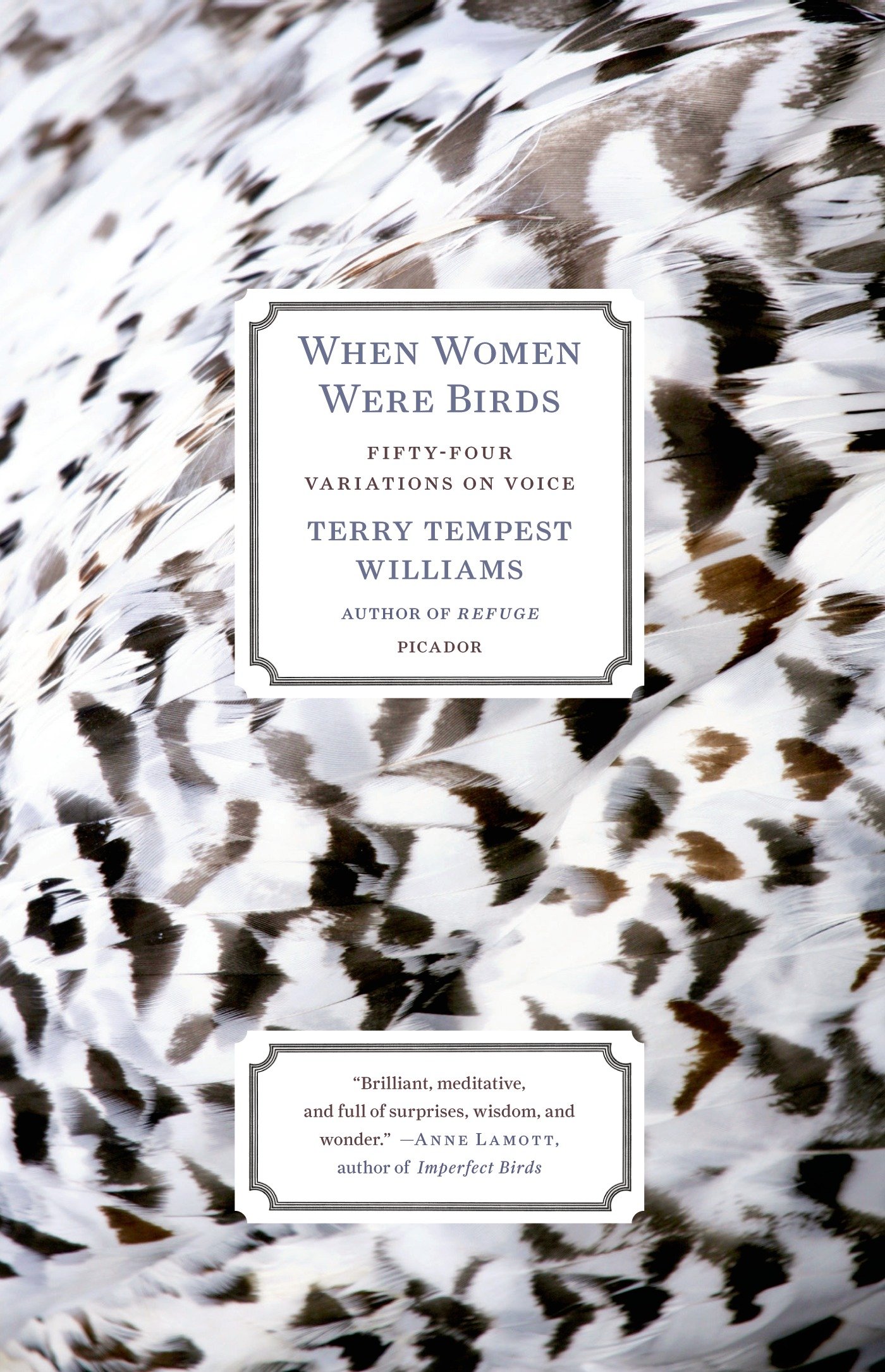 As Terry Tempest Williams’ mother lay dying she said, ‘I am leaving you
all my journals… but you must promise me that you will not look at them until
after I am gone.' After her mother died, Williams
discovered three shelves of clothbound journals. ‘I opened the
first journal. It was empty. I opened the second journal. It was empty. I
opened the third. It, too was empty, as was the fourth, the fifth, the sixth –
shelf after shelf after shelf, all my mothers’ journals were blank.' The blow of the empty
journals was like ‘a second death’ to Williams who describes her own journal
keeping as a way of experiencing each encounter in life twice: ‘once in the
world, and once again on the page.' This book is Williams' response to her mother's empty journals.
As Terry Tempest Williams’ mother lay dying she said, ‘I am leaving you
all my journals… but you must promise me that you will not look at them until
after I am gone.' After her mother died, Williams
discovered three shelves of clothbound journals. ‘I opened the
first journal. It was empty. I opened the second journal. It was empty. I
opened the third. It, too was empty, as was the fourth, the fifth, the sixth –
shelf after shelf after shelf, all my mothers’ journals were blank.' The blow of the empty
journals was like ‘a second death’ to Williams who describes her own journal
keeping as a way of experiencing each encounter in life twice: ‘once in the
world, and once again on the page.' This book is Williams' response to her mother's empty journals.
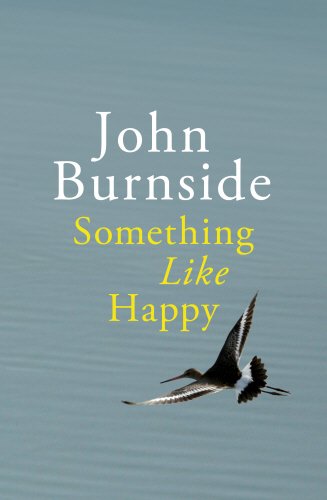 Twelve elegant, subtle and satisfying short stories from the winner of this year's Edge Hill Prize.
Twelve elegant, subtle and satisfying short stories from the winner of this year's Edge Hill Prize.
Reading in 2015
Since A Song for Issy Bradley was published I've received numerous novel proofs in the post and more email requests for cover quotes than I can recall. At the moment I don't have the time to read proofs - it's really frustrating because reading is my favourite thing to do and I'd usually relish the idea of peeping at books before everyone else gets to see them. The thing is, I have some corrections to make before my PhD graduation in May 2015 and another of my children is having surgery in January (son 1, this time) which means I'll have 2 slightly fragile teenagers to care for (son 2 is on light duties until early spring), and a daily paper round to complete until son 1 is allowed to ride a bike and carry a bag again, which probably won't be before mid March (argh!). And, of course, I'm supposed to be writing a novel. That leaves me with very little time to read anything other than the things I absolutely *have* to read. So to anyone who has sent, or is about to send me a proof, please don't take it personally if I don't get around to reading it in the near future - I hope to catch up with myself eventually, but it may take some time.
 I loved this book.
I loved this book. Perhaps I loved it because I have driven through the night to be at my brother's bedside. Maybe I loved it because I have listened, with clenched fists, to the news that he has, once again, been discharged from hospital, despite not being mentally well enough to remember to eat or change his clothes. I may have loved this book because I've regularly felt infuriated and hurt by my brother's refusal to make even the smallest attempt to accept treatment. It could be that I loved this book because as I read it I felt the horror of someone else's helplessness and realised that it was similar to my own. This novel made me cry and it made me laugh; it reminded me that humour that can be found in the darkest of places.

In July 2012 Thomas Harding's fourteen-year-old son Kadian was killed in a bicycle accident. Shortly afterwards Thomas began to write. This book is the result. Part tribute, part lament, Kadian Journal is a precise and heart-breaking account of bereavement. It's a raw, uncompromising and, at times, uncomfortable book. Harding details a loss that is both unimaginable and unbearable - Kadian Journal made me hug my children a little harder, and it made me want to hug Harding and his family, too.

This is everything you'd expect from Smith: deft, clever and elegant. How to be Both is divided into 2 sections. Some editions begin with one section and some begin with the other. My edition began with Francesco and concluded with George. I'm glad it did. I *think* it's the way I would have preferred it to be. But I'm not 100% certain - how could I be certain, having read Francesco and George's musings about the different ways of seeing and looking, and whether the first thing we see can really be described as 'first'? - I'll never really know for sure. And I like that.
 Clever Girl is a fragmentary novel that follows the trajectory of Stella's life. Written in beautiful, clear prose, and rich with carefully observed detail, it's exactly what you'd expect from Hadley.
Clever Girl is a fragmentary novel that follows the trajectory of Stella's life. Written in beautiful, clear prose, and rich with carefully observed detail, it's exactly what you'd expect from Hadley.  I know, I know - I can't believe it took me so long to read this, either. What an incredible novel. I've rarely felt so enraged while reading. I could have cheerfully murdered Nathan Price - I didn't care about his demons or his traumatic past, I just wanted to thump him. This novel is told by the long-suffering women in Nathan Price's life. It's a gorgeous exploration of the toxicity of patriarchy, the dangers of fundamentalism and the abuses of colonialism.
I know, I know - I can't believe it took me so long to read this, either. What an incredible novel. I've rarely felt so enraged while reading. I could have cheerfully murdered Nathan Price - I didn't care about his demons or his traumatic past, I just wanted to thump him. This novel is told by the long-suffering women in Nathan Price's life. It's a gorgeous exploration of the toxicity of patriarchy, the dangers of fundamentalism and the abuses of colonialism. 
'WHAT A WONDERFUL BOOK' (see what I did there?). Irving explores doubt and faith in this darkly comic novel. When Owen Meany kills his best friend's mother in a baseball game, he convinces himself that he is an instrument of God. This is a long novel - at times I had no idea where it was going, but I didn't really care because Owen Meany was so interesting and strange, and I *really* wanted to know what happened to him. I found the ending incredibly moving (if a little too neat) as several things suddenly made sense.
 Cusk expertly conveys the unsaid and the unsayable in these linked stories. I love her observations regarding the ways in which woman are changed (and, in some cases, ravaged) by motherhood. Take this passage, for example: 'For Martin, her body was like a village that over time had sprawled and grown until it became a bustling centre, cut through with new roads and modern developments, some of them unsightly. It had changed, but it was where he lived.' Arlington Park reminded me of Helen Simpson's delicious prose. I read it while son 2 was in hospital in early November and I found myself playing the 'just one more page' game at night, even though I really needed to get to sleep.
Cusk expertly conveys the unsaid and the unsayable in these linked stories. I love her observations regarding the ways in which woman are changed (and, in some cases, ravaged) by motherhood. Take this passage, for example: 'For Martin, her body was like a village that over time had sprawled and grown until it became a bustling centre, cut through with new roads and modern developments, some of them unsightly. It had changed, but it was where he lived.' Arlington Park reminded me of Helen Simpson's delicious prose. I read it while son 2 was in hospital in early November and I found myself playing the 'just one more page' game at night, even though I really needed to get to sleep.  As Terry Tempest Williams’ mother lay dying she said, ‘I am leaving you
all my journals… but you must promise me that you will not look at them until
after I am gone.' After her mother died, Williams
discovered three shelves of clothbound journals. ‘I opened the
first journal. It was empty. I opened the second journal. It was empty. I
opened the third. It, too was empty, as was the fourth, the fifth, the sixth –
shelf after shelf after shelf, all my mothers’ journals were blank.' The blow of the empty
journals was like ‘a second death’ to Williams who describes her own journal
keeping as a way of experiencing each encounter in life twice: ‘once in the
world, and once again on the page.' This book is Williams' response to her mother's empty journals.
As Terry Tempest Williams’ mother lay dying she said, ‘I am leaving you
all my journals… but you must promise me that you will not look at them until
after I am gone.' After her mother died, Williams
discovered three shelves of clothbound journals. ‘I opened the
first journal. It was empty. I opened the second journal. It was empty. I
opened the third. It, too was empty, as was the fourth, the fifth, the sixth –
shelf after shelf after shelf, all my mothers’ journals were blank.' The blow of the empty
journals was like ‘a second death’ to Williams who describes her own journal
keeping as a way of experiencing each encounter in life twice: ‘once in the
world, and once again on the page.' This book is Williams' response to her mother's empty journals.  Twelve elegant, subtle and satisfying short stories from the winner of this year's Edge Hill Prize.
Twelve elegant, subtle and satisfying short stories from the winner of this year's Edge Hill Prize.Reading in 2015
Since A Song for Issy Bradley was published I've received numerous novel proofs in the post and more email requests for cover quotes than I can recall. At the moment I don't have the time to read proofs - it's really frustrating because reading is my favourite thing to do and I'd usually relish the idea of peeping at books before everyone else gets to see them. The thing is, I have some corrections to make before my PhD graduation in May 2015 and another of my children is having surgery in January (son 1, this time) which means I'll have 2 slightly fragile teenagers to care for (son 2 is on light duties until early spring), and a daily paper round to complete until son 1 is allowed to ride a bike and carry a bag again, which probably won't be before mid March (argh!). And, of course, I'm supposed to be writing a novel. That leaves me with very little time to read anything other than the things I absolutely *have* to read. So to anyone who has sent, or is about to send me a proof, please don't take it personally if I don't get around to reading it in the near future - I hope to catch up with myself eventually, but it may take some time.

No comments:
Post a Comment